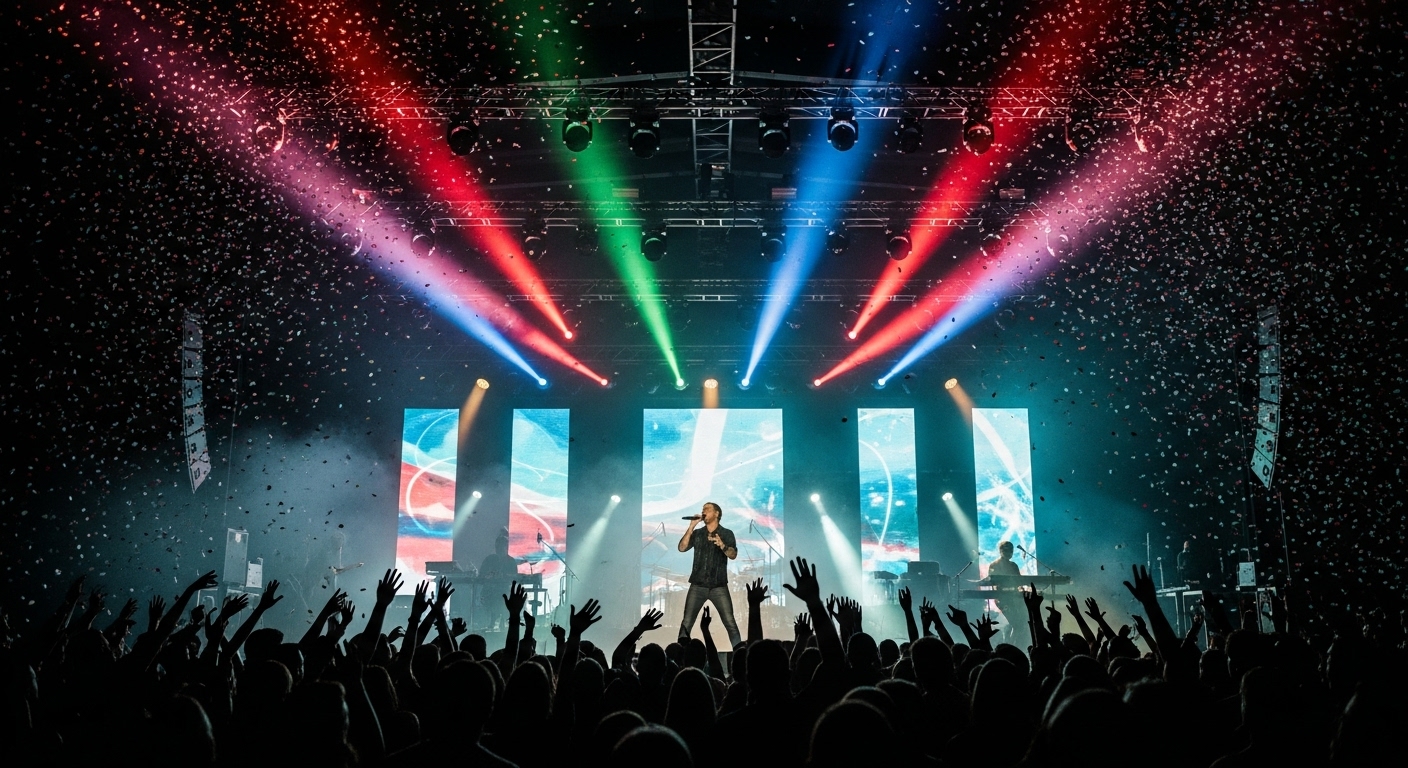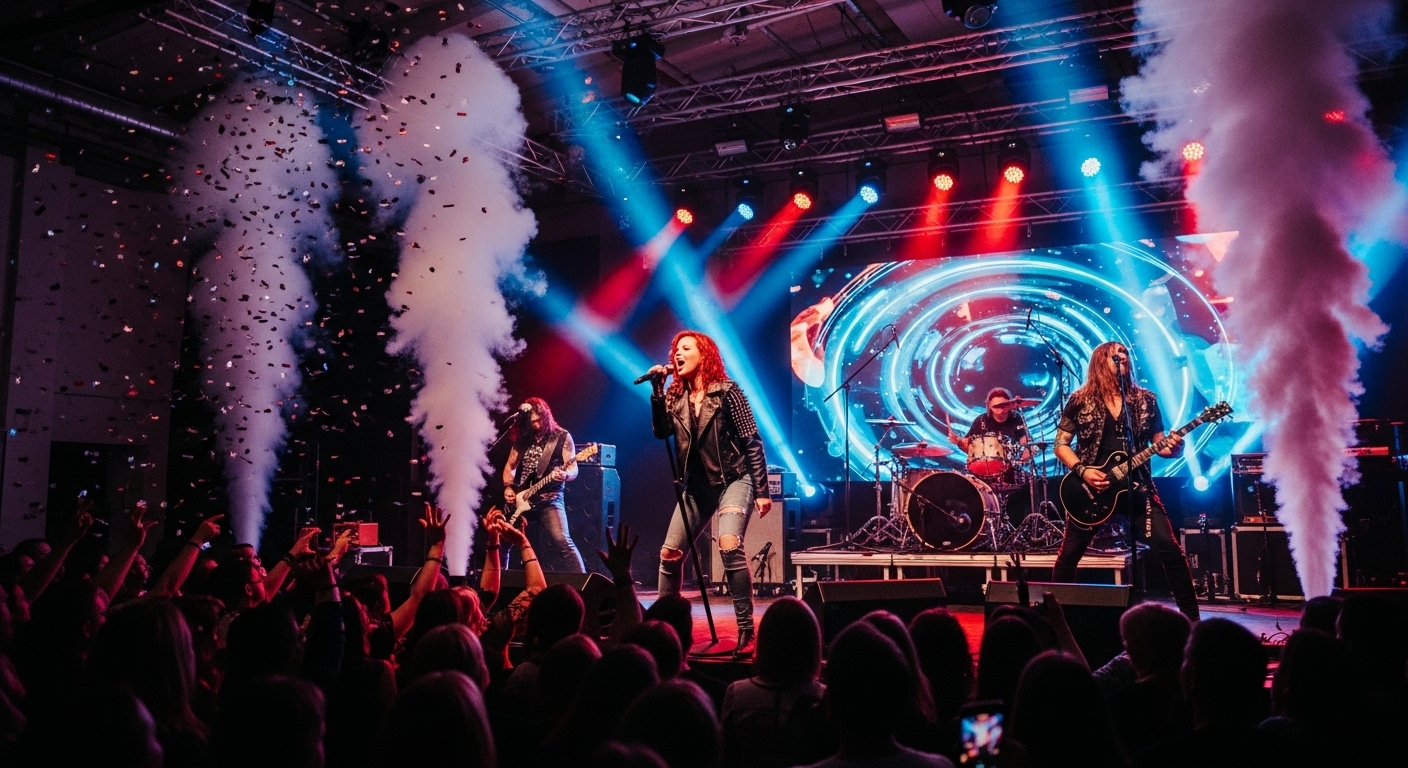Entertainment is the beating heart of human expression. It lives in every song we hum, every story we tell, every dance we perform, and every screen we watch. From the dawn of civilization to the modern digital age, entertainment has evolved constantly, reflecting our societies, our emotions, and our imagination. It shapes culture, builds community, and reminds us of what it means to be alive.
Whether it’s the laughter shared in a crowded theatre, the tension of a thrilling movie scene, the rhythm of a concert that shakes the ground, or the quiet escape into a novel, entertainment surrounds us. It offers joy in moments of sadness, hope in times of struggle, and a mirror through which we see ourselves.
The Birth of Entertainment
The history of entertainment stretches back to the earliest humans. Before there were screens, stages, or instruments, there were stories. Ancient people gathered around fires to tell tales of gods, heroes, and nature’s mysteries. These stories weren’t just for amusement; they were how people explained the world, taught lessons, and preserved memories.
Music came next, born from rhythm and emotion. The beating of drums, the hum of voices, and the clapping of hands became ways to celebrate, mourn, and connect. Dance followed naturally, turning sound into movement and movement into art. Entertainment, in its earliest form, was a shared experience—a way for communities to express joy and togetherness.
As civilizations developed, entertainment became more structured. Ancient Egyptians staged plays based on myths. The Greeks created theatrical masterpieces that explored love, power, and tragedy. In Rome, gladiators fought for spectacle, and poets wrote to move the soul. Every society developed its own form of performance and storytelling, proving that entertainment is as essential as food or shelter—it nourishes the spirit.
The Power of Storytelling
At its core, entertainment is about storytelling. Whether spoken, written, sung, or acted, stories are how humans make sense of the world. They help us imagine, dream, and empathize. Through stories, we experience lives we could never live, places we could never visit, and emotions we might never feel otherwise.
Books gave storytelling permanence. With writing, tales could outlive their tellers. Myths became literature, and literature became culture. The invention of the printing press made books accessible, and reading became one of the earliest personal entertainments. People could now escape into entire worlds with nothing but words and imagination.
Every era has had its signature stories—from Shakespeare’s timeless plays to modern novels that define generations. Even in today’s age of screens and sound, the written word remains powerful. Storytelling adapts to every new medium but never loses its essence: to make people feel and think.
The Age of Theatre and Performance
Before cinema or television existed, live theatre was the pinnacle of entertainment. Actors performed before real audiences, bringing stories to life with emotion, costume, and music. Ancient theatres in Greece and Rome could hold thousands, showing just how deeply people valued live performance.
Theatre evolved across the world—Chinese opera, Indian dance dramas, Japanese kabuki, and European plays all developed unique styles. What united them was the human connection between performer and audience. Every show was a once-in-a-lifetime experience; no two performances were ever the same.
Even today, theatre continues to captivate. Broadway and West End productions prove that, despite all technological progress, live entertainment remains irreplaceable. There’s something magical about watching emotions unfold before your eyes, without filters or screens.
The Revolution of Cinema
The invention of film changed everything. For the first time, people could see moving images captured and replayed. The earliest short films amazed audiences who had never witnessed such a thing. It was as if dreams had come to life.
Soon, cinema became an art form. Silent films relied on gestures and expressions, proving that emotion could be universal. When sound arrived in the 1920s, movies became even more immersive. Hollywood rose as the center of the film world, producing stars who became global icons.
Cinema allowed people to escape reality. During wars and depressions, films offered hope and distraction. They transported audiences to distant lands, futuristic worlds, or emotional journeys that felt deeply human. As technology advanced, color, special effects, and digital imagery expanded what was possible.
Today, films are not just entertainment—they are cultural statements, historical records, and emotional experiences. From independent films to massive blockbusters, cinema continues to define how we see the world and ourselves.
The Soundtrack of Life: Music
Music is perhaps the most emotional form of entertainment. A melody can express what words cannot. It connects people instantly, no matter their language or culture. Music accompanies every part of human life—celebrations, ceremonies, heartbreaks, and triumphs.
Through centuries, music has evolved alongside humanity. Classical symphonies once filled grand halls. Folk songs told the stories of everyday people. Jazz brought improvisation and freedom, rock and roll broke rules, pop created icons, and hip-hop gave voice to generations.
With the rise of radio and records, music became a shared experience. People could hear the same song across continents. Musicians became global stars, shaping style and identity. Later, digital platforms revolutionized the industry again, making it possible for anyone to access millions of songs instantly.
Yet despite all the change, the essence remains the same. Music speaks directly to emotion. It lifts spirits, heals pain, and brings people together. A simple tune can transport someone back in time, reminding them of who they were and who they’ve become.
The Golden Age of Television
Television brought entertainment into living rooms. For decades, families gathered around the screen to share laughter, suspense, and emotion. It became part of daily life, influencing how people saw the world.
In the early years, TV was a novelty—black and white images broadcast live. But as technology improved, color, sound, and creativity flourished. Sitcoms, dramas, news, and reality shows shaped cultural moments that millions experienced together.
Television also became a powerful storytelling platform. Long-running series allowed characters to develop over years, creating deep emotional investment. Iconic shows defined generations and reflected society’s changing values.
Even as digital media rises, television remains influential. It has evolved into streaming, adapting to new formats while keeping its storytelling roots. The small screen continues to hold a big place in our hearts.
The Digital Transformation
The internet forever changed entertainment. Once, people waited for shows or saved money for movie tickets. Now, with a few clicks, they can access endless content from home. Streaming platforms, social media, and online creators have made entertainment personal and portable.
Audiences no longer just watch—they participate. They comment, share, and even create their own content. The line between entertainer and viewer has blurred. Platforms like video sharing sites, podcasts, and social networks have given rise to a new generation of artists who build audiences without traditional gatekeepers.
Technology has also created interactive forms of entertainment. Virtual concerts, digital art, and augmented reality experiences bring fans closer to creators. With smartphones and virtual reality headsets, anyone can access entertainment tailored to their mood and moment.
This democratization of entertainment means more voices, more stories, and more diversity. But it also brings challenges: information overload, shorter attention spans, and the constant pressure to stay “viral.” Still, it’s a revolution that has made the world of entertainment more alive than ever.
The Rise of Gaming
Gaming has become one of the most powerful and creative forms of entertainment in the modern world. What started as simple pixel games on arcade machines has grown into a vast universe of interactive storytelling.
Games today rival films in budget and artistry. They allow players to live stories, not just watch them. A game can make someone the hero, the explorer, or even the villain, offering experiences unique to each player. The blend of challenge, emotion, and choice makes gaming deeply engaging.
Online gaming has also created global communities. Players connect across continents, forming friendships and rivalries in virtual worlds. Competitive gaming, known as esports, now fills arenas and attracts millions of viewers worldwide.
Gaming is no longer just a pastime; it is an art form, a sport, and a cultural phenomenon. As virtual reality and artificial intelligence advance, gaming will continue to redefine what entertainment can be.
Celebrities and Influence
Entertainment has always been tied to fame. From ancient performers to modern influencers, audiences have celebrated those who bring stories and emotions to life. Celebrities shape fashion, language, and even social movements.
In the past, fame was distant. Movie stars and musicians lived behind the glamour of screens and stages. Today, social media allows fans to see the personal side of their idols. This closeness creates loyalty and connection but also pressure. Celebrities must navigate public expectations, privacy, and constant visibility.
Influencers have changed the meaning of stardom. They build communities around authenticity rather than perfection. A single person with creativity and a phone can now entertain millions. Fame has become more accessible but also more demanding.
Despite these changes, the fascination with celebrities endures because they represent human dreams. They show us what talent, creativity, and passion can achieve.
The Social Power of Entertainment
Entertainment is not only fun—it’s influential. Movies, music, and art shape how societies think and feel. They can challenge prejudice, inspire movements, and give voice to the unheard.
A powerful film can spark empathy for others. A song can unite a nation during crisis. A play can question injustice. Entertainment mirrors reality but also has the power to transform it.
In recent years, the demand for representation and authenticity has grown. Audiences want stories that reflect the world as it truly is—diverse, complex, and human. This shift shows that entertainment is not just about escape; it’s about awareness and connection.
The Emotional Connection
What truly makes entertainment timeless is its emotional depth. Whether it’s a child laughing at a cartoon, a couple swaying to a love song, or a crowd cheering at a concert, entertainment taps into universal feelings.
It helps us process emotions we can’t express. It brings comfort during pain and joy during loneliness. It reminds us that, no matter how different we are, we share the same capacity to feel.
This emotional connection explains why certain stories or songs stay with us forever. They become part of who we are, woven into the memories of our lives.
The Future of Entertainment
The future promises even more innovation. Artificial intelligence, virtual reality, and immersive storytelling are reshaping how we experience entertainment. Imagine concerts in virtual worlds, movies you can interact with, or AI-generated stories that adapt to your choices.
However, technology will never replace human creativity. The core of entertainment will always be emotion, imagination, and humanity. The tools may change, but the purpose remains—to inspire, connect, and move people.
Sustainability will also play a larger role. As awareness grows, the entertainment industry is exploring eco-friendly production and inclusive storytelling that benefits communities and the planet.
Entertainment will continue to be a mirror of human progress—constantly evolving yet timeless in its essence.
Conclusion
Entertainment is more than distraction—it’s a reflection of life itself. It tells us who we are, what we value, and how we dream. From the first stories whispered in the dark to the digital masterpieces of today, entertainment has grown alongside humanity, changing in form but never in spirit.
It unites people across borders and generations. It turns moments into memories and ideas into emotions. It gives meaning to imagination and shape to joy.
The world of entertainment is infinite, bound only by creativity. And as long as humans continue to feel, imagine, and dream, entertainment will continue to evolve—forever captivating hearts and minds.



